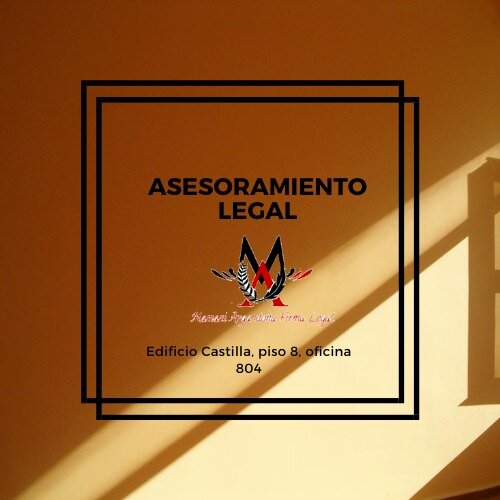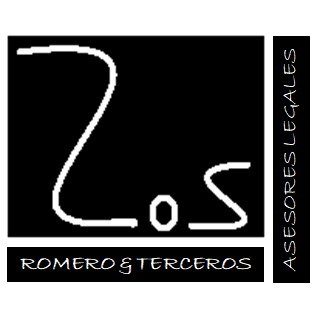Best Banking & Finance Lawyers in Bolivia
Share your needs with us, get contacted by law firms.
Free. Takes 2 min.
Or refine your search by selecting a city:
List of the best lawyers in Bolivia
About Banking & Finance Law in Bolivia
Banking and finance law in Bolivia encompasses regulations and legal frameworks that govern financial activities in the country. This includes the operation of banks, financial institutions, and the management of financial transactions. The Bolivian financial system is regulated primarily by the Central Bank of Bolivia (Banco Central de Bolivia) and the Financial System Supervisory Authority (ASFI). The legal framework aims to ensure stability, protect consumers, and promote fair and transparent financial practices. Over recent years, Bolivia has enhanced its financial laws to support economic growth, reinforce financial inclusion, and adapt to international standards.
Why You May Need a Lawyer
Hiring a lawyer familiar with banking and finance law can be crucial in several scenarios:
- Understanding and navigating complex financial regulations and compliance requirements.
- Addressing disputes between borrowers and lenders, or issues related to loan agreements and mortgages.
- Assisting businesses with structuring financial transactions such as mergers, acquisitions, and financing deals.
- Guidance on bankruptcy proceedings or insolvency issues.
- Ensuring the legality of securities transactions and adherence to investment regulations.
- Protecting consumer rights in cases of fraud or unfair practices by financial institutions.
Local Laws Overview
Bolivia's banking and finance laws cover a range of essential areas:
- Banco Central de Bolivia: Responsible for the monetary stability of the country, issues currency, and oversees financial markets.
- ASFI (Autoridad de Supervisión del Sistema Financiero): The regulatory body that supervises financial institutions, ensuring adherence to national and international standards.
- Consumer Protection: Laws designed to protect consumers from malpractices and ensure fair access to financial services.
- Financial Services Laws: Regulations that outline the provision of banking services, loans, and credits.
- Anti-Money Laundering (AML) and Counter-Terrorism Financing (CTF): Stringent requirements to prevent illegal financial activities.
Frequently Asked Questions
What are the main regulatory bodies overseeing the financial sector in Bolivia?
The Central Bank of Bolivia and the Financial System Supervisory Authority (ASFI) are the primary regulatory bodies.
How does Bolivia ensure consumer protection within the financial sector?
Bolivia has implemented specific laws and regulations to safeguard consumers, including policies against unfair lending practices and fraud.
What should I do if I encounter a financial dispute with a bank?
It's advisable to consult with a lawyer specializing in banking disputes to understand your rights and explore legal remedies.
Are there any regulations for foreign investments in Bolivia's financial market?
Yes, foreign investments are subject to regulations that ensure compliance with national financial stability and economic growth policies.
How does Bolivia handle bankruptcy and insolvency cases?
Bolivia has specific legal procedures to handle bankruptcy, focusing on debt resolution and protecting creditor rights.
What is the importance of AML/CTF regulations in Bolivia?
AML/CTF regulations prevent money laundering and protect the financial system from being used for illegal activities.
Can private individuals invest in Bolivian securities?
Yes, but it is essential to comply with local securities regulations and possibly seek legal advice for informed decision-making.
How can I ensure compliance with Bolivian financial regulations?
Working with a lawyer or a compliance expert can help ensure that your financial activities adhere to local laws and standards.
Is legal recourse available for financial fraud victims?
Yes, victims can pursue legal recourse with the assistance of legal professionals to seek justice and possible compensation.
Do financial laws in Bolivia change frequently?
Legal frameworks do evolve, and it is crucial to stay informed or consult with legal experts to remain compliant.
Additional Resources
For further information and support, consider reaching out to the following organizations:
- Banco Central de Bolivia
- Autoridad de Supervisión del Sistema Financiero (ASFI)
- Ministry of Economy and Public Finance of Bolivia
- Defensoria del Consumidor Financiero (Financial Consumer Defense)
- Local Bar Associations for legal assistance
Next Steps
If you need legal assistance in banking and finance, consider these steps:
- Identify the specific area of financial law where you require assistance.
- Research and contact lawyers specializing in banking and finance law in Bolivia.
- Gather all relevant documentation and information related to your legal inquiry.
- Schedule consultations to discuss your needs and evaluate potential legal strategies.
- Stay informed about local laws and any updates that may affect your situation.
Seeking professional legal help is crucial in navigating the complexities of banking and finance law, ensuring your interests are safeguarded and promoting compliance with local regulations.
Lawzana helps you find the best lawyers and law firms in Bolivia through a curated and pre-screened list of qualified legal professionals. Our platform offers rankings and detailed profiles of attorneys and law firms, allowing you to compare based on practice areas, including Banking & Finance, experience, and client feedback.
Each profile includes a description of the firm's areas of practice, client reviews, team members and partners, year of establishment, spoken languages, office locations, contact information, social media presence, and any published articles or resources. Most firms on our platform speak English and are experienced in both local and international legal matters.
Get a quote from top-rated law firms in Bolivia — quickly, securely, and without unnecessary hassle.
Disclaimer:
The information provided on this page is for general informational purposes only and does not constitute legal advice. While we strive to ensure the accuracy and relevance of the content, legal information may change over time, and interpretations of the law can vary. You should always consult with a qualified legal professional for advice specific to your situation.
We disclaim all liability for actions taken or not taken based on the content of this page. If you believe any information is incorrect or outdated, please contact us, and we will review and update it where appropriate.
Browse banking & finance law firms by service in Bolivia
Bolivia Attorneys in related practice areas.
Browse banking & finance law firms by city in Bolivia
Refine your search by selecting a city.

















